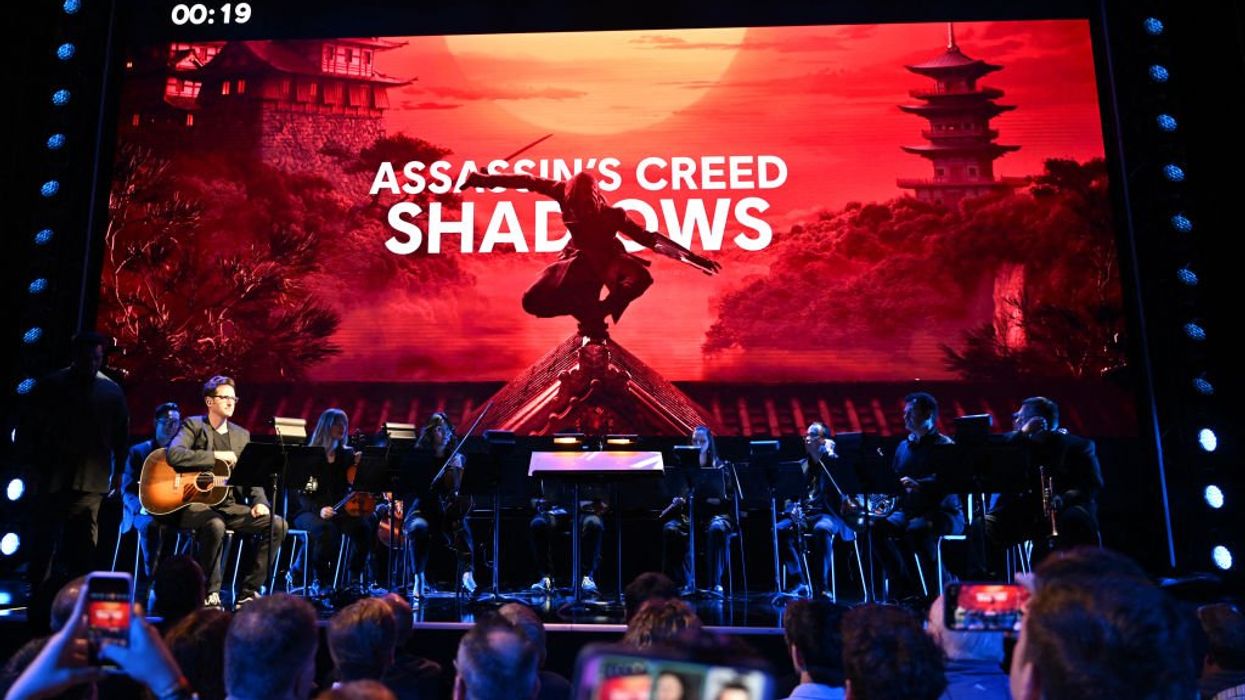
Photo by ROBYN BECK/AFP via Getty Images

The game has sparked petitions and government discussion in Japan.
Ubisoft's Assassin's Creed Shadows has caused significant uproar in Japan due to creative licenses and historical inaccuracies.
The game focuses on the greatly exaggerated depiction of Yasuke, an alleged black samurai from the mid-1500s. Ubisoft turned the vague story of the "black slave" in Japan into a fierce and heroic samurai.
As expected, Japanese gamers did not take kindly to the setting of feudal Japan being used for a game inspired by diversity, equity, and inclusion.
The game has caused such great offense that Japanese political aides have made comments, and letters have been sent to Japan's Ministry of Education, Culture, Sports, Science and Technology as well as to the Ministry of Foreign Affairs, among others.
'Assassin's Creed games are works of fiction inspired by real historical events and figures.'
A petition regarding the "lack of historical accuracy and cultural respect" in the game is nearing 100,000 signatures.
"This game is based on the samurai of Japan, ignoring the fact that the samurai is the upper class," the petition continued. "Ubisoft continues to misunderstand the essence and role of samurai. This is a serious insult to Japanese culture and history and can lead to racism in Asia. We call on Ubisoft to immediately discontinue the launch."
Ubisoft initially decreed complaints to be hateful and essentially racist, with CEO Yves Guillemot making remarks in June 2024.
"I want to make it clear that we, at Ubisoft, condemn these hateful acts in the strongest possible terms," Guillemot said, according to Game Developer. "I encourage the rest of the industry and players to denounce them, too."
As YouTuber Shohei Kondo stated, the game's creative director, Jonathan Dumont, originally said the idea behind the black samurai character came from "looking for a character who could be seen by us as a samurai, someone who is not Japanese."
As the backlash has only piled up, Ubisoft finally issued a lengthy statement in a blog post on July 23, 2024.
After a brief apology and recognition of the importance of Japanese history, the company essentially excused its ignorance as artistic license but still reserved the right to use the Japanese historical settings as it saw fit.
"We have put significant effort into ensuring an immersive and respectful representation of Feudal Japan. However, our intention has never been to present any of our Assassin's Creed games, including Assassin's Creed Shadows, as factual representations of history, or historical characters. Instead, we aim to spark curiosity and encourage players to explore and learn more about the historical settings we get inspired by."
The studio added that the game was "designed to be an entertaining video game that tells a compelling, historical fiction set in Feudal Japan."
Ubisoft attributed its apparent cultural appropriation to being a work of fiction "inspired" by real events:
"While we strive for authenticity in everything that we do, Assassin's Creed games are works of fiction inspired by real historical events and figures. From its inception, the series has taken creative license and incorporated fantasy elements to craft engaging and immersive experiences."
The studio then essentially admitted the story of Yasuke, as depicted in the game, is fictional.
"The representation of Yasuke in our game is an illustration of this. ... While Yasuke is depicted as a samurai in Assassin's Creed Shadows, we acknowledge that this is a matter of debate and discussion."
This was always the case, despite Ubisoft's attempt to push its game through without complaint.
The few seemingly authentic historical documents from the time allude to Yasuke as being a man-at-arms or apprentice and possibly participating in one-armed conflict but was never mentioned as being a samurai. The documents included the African being seen as a spectacle, with locals paying to see him, having never seen a black person before.
Yasuke also allegedly had his life spared after being referred to as "an animal [who] knows nothing."
"Since he is not Japanese, do not kill him," a document was translated to say.
Ubisoft has made 2024 the year of DEI-laden games and become one of the most- — if not the most- — criticized studios.
One of its executives pushed for gamers to accept subscription models and get used to not owning their games, while its subsidiary, Massive Entertainment, dove head-first into DEI with Star Wars Outlaws. The game features a masculine female lead character while the studio made heavy pushes about "trans rights" and Pride on its website and social media.
It is worth noting that a female main character is included in Assassin's Creed Shadows as well.
Like Blaze News? Bypass the censors, sign up for our newsletters, and get stories like this direct to your inbox. Sign up here!
Andrew Chapados